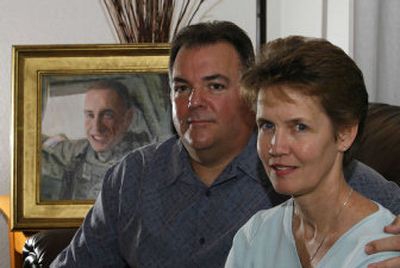Dignity for the dead

In an about-face by the U.S. government four years into the war in Iraq, America’s fallen troops are being brought back to their families aboard charter jets instead of commercial flights, and the caskets are being met by honor guards in white gloves instead of baggage handlers with forklifts.
That change – which took effect quietly in January and also applies to soldiers killed in Afghanistan – came after a campaign waged by a father who was aghast to learn that his son’s body was going to be unloaded like so much luggage.
John Holley said an airline executive told him that was the “most expeditious” way to get the body home.
“I said, ‘That’s not how my son is coming home,’ ” said Holley, an Army veteran from San Diego whose son, Spc. Matthew Holley, 21, was killed by a roadside bomb in Iraq in 2005. “If it was ‘expeditious’ to deliver them in garbage trucks, would you do that?”
John Holley complained to his congressman, then-House Armed Services Committee Chairman Duncan Hunter, R-Calif. He also got help from Sen. Barbara Boxer, D-Calif.
They made sure an honor guard from Holley’s unit based at Fort Campbell, Ky., was sent to San Diego for the arrival of the body. Then he turned his attention to other troops.
Hunter wrote a letter to then-Defense Secretary Donald Rumsfeld in December 2005, calling for more appropriate military honors.
Persuaded by Hunter and others, Congress passed a law that requires the remains to be flown on a military or military-contracted aircraft. There must be an escort and an honor guard. Commercial airliners are used only if requested by families, or in cases where remains are sent outside the U.S.